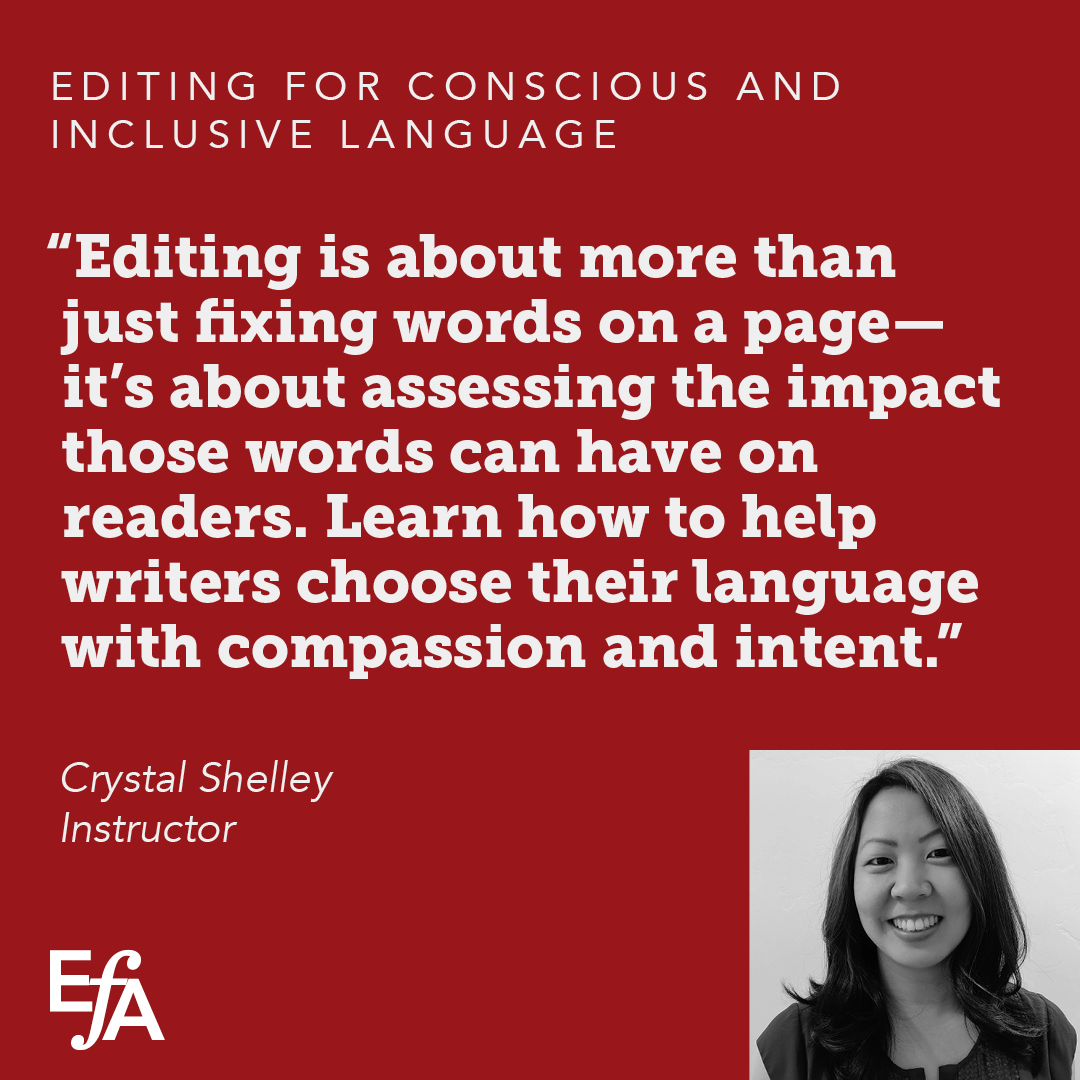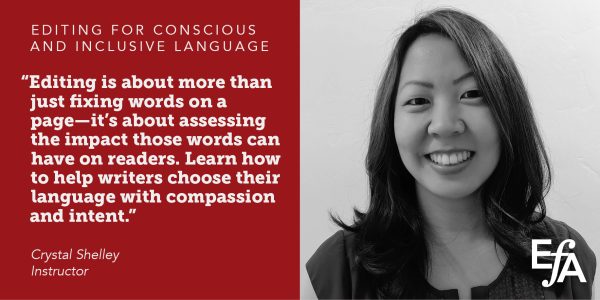Description
Self-paced courses are undertaken by the student at their own pace. No instructor feedback is given, although models are provided in the lessons. All self-paced courses include at least one live Q&A session, held via Zoom. Students will have 365 days to access the course material. To extend access by 3 to 12 months from the initial access end date, email the education coordinator. More information about how our classes are conducted is available here.
After placing your order, your course will be added to your personal course library on our education site. That site has different login information from the main EFA site. Please check your email for information on how to access the course.
As editors, we recognize that words are powerful, and our role is to help clients craft their writing to reflect their intended message. More and more, writers, publishers, and readers are understanding how biased or exclusive language can render text ineffective or harmful, and editors who can identify oppressive language, problematic representation, and unintentional bias are a vital part of the process of addressing these issues.
This self-paced course will teach editors the concepts of conscious language and inclusive language, and how to apply these frameworks to editing practices. Students will learn about evaluating writing related to topics such as race, gender, sexual orientation, disability, and body size, as well as how to craft client feedback. Several sample passages will be provided so students can practice assessment and querying skills, then see how the instructor handled those same passages. Students will also have direct access to the instructor during live Q&A sessions.
Course modules include:
- The Editor’s Role
- Inclusive Language and Conscious Language
- Tone and Framing
- Cultural Appropriation and Stereotypes
- Groups and Communities
- Terminology for Referring to People of Color
- Gendered Language
- Gender Identity and Sexual Orientation
- Disability, Health, and Mental Health
- Age and Generation
- Religion and Spirituality
- Socioeconomic Status and Education
- Body Size and Food
- The Editorial Process
- Writing Manuscript Comments
- Client Resistance
- Continued Learning
The information offered in this course is beneficial for all editors, regardless of the type of editing you offer, the genres you work in, the clients you serve, and whether you’re new or seasoned. Editing for conscious and inclusive language is a valuable way in which editors can truly help writers and advocate for all readers.
This course is open to students at all levels.
Crystal Shelley is the owner of Rabbit with a Red Pen, where she provides editing and authenticity reading services to fiction authors. Drawing on her background as a social worker, she unites her love of language and her passion for social justice by advocating conscious language use and inclusive representation in her editorial work. She is the creator of the Conscious Language Toolkits for Editors and Writers and serves on the board of ACES: The Society for Editing.



